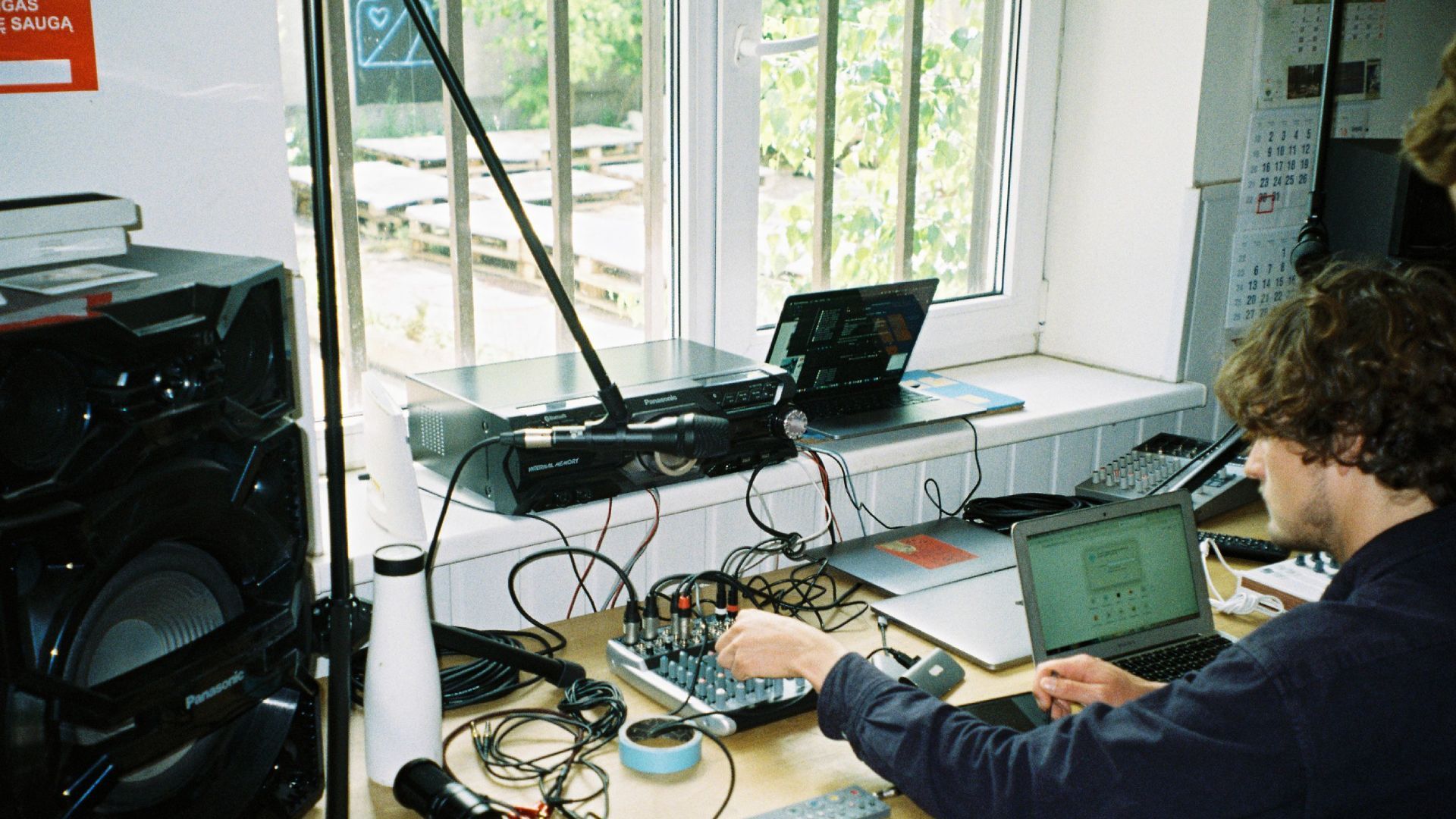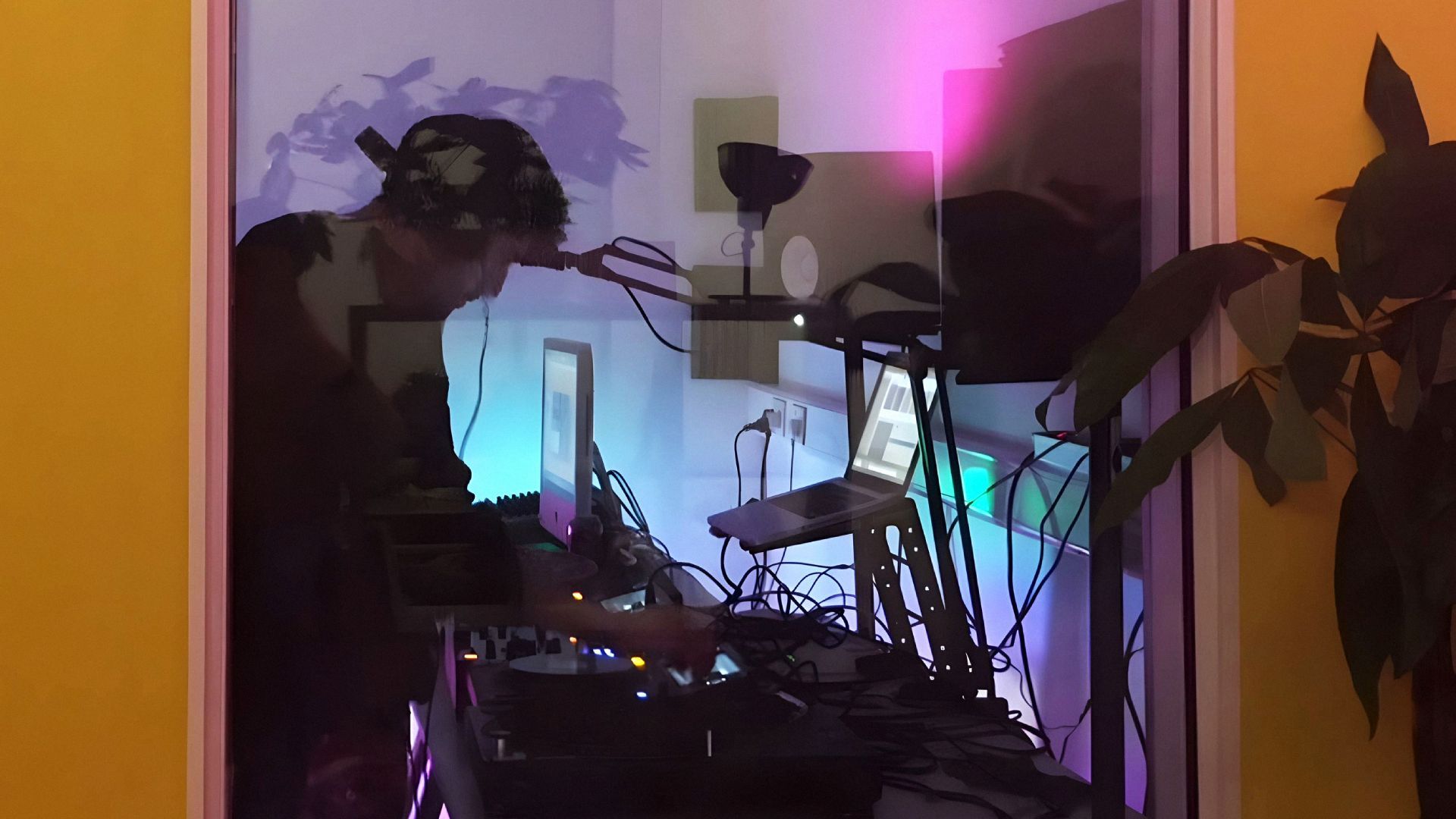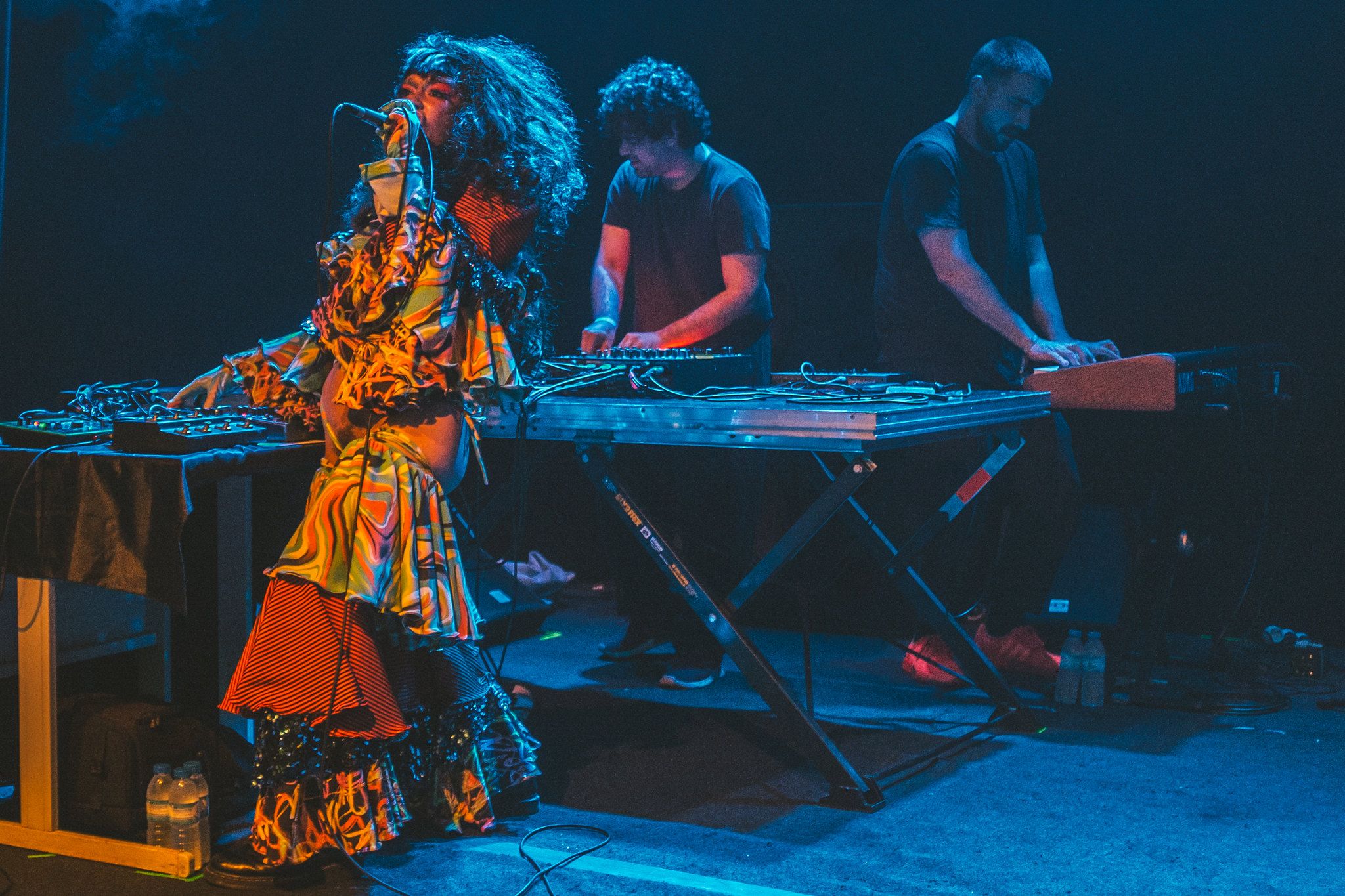How not to lose grassroots spirit of independent online radio station?
Some thoughts on Radio Kapitał’s 5th birthday.
Author: Pavel Kirpikau
Photos by: Helena Majewska & Radio Kapitał
In 2019, a group of artists and activists in Warsaw, Poland founded an online community radio station called Radio Kapitał. What began as an organic, grassroots art project quickly grew into a vibrant, 24/7 platform for diverse voices and experimental content. Operating as a digital-only station without an FM presence, Radio Kapitał has become home to around 160 active shows, with hubs in Warsaw and Łódź.
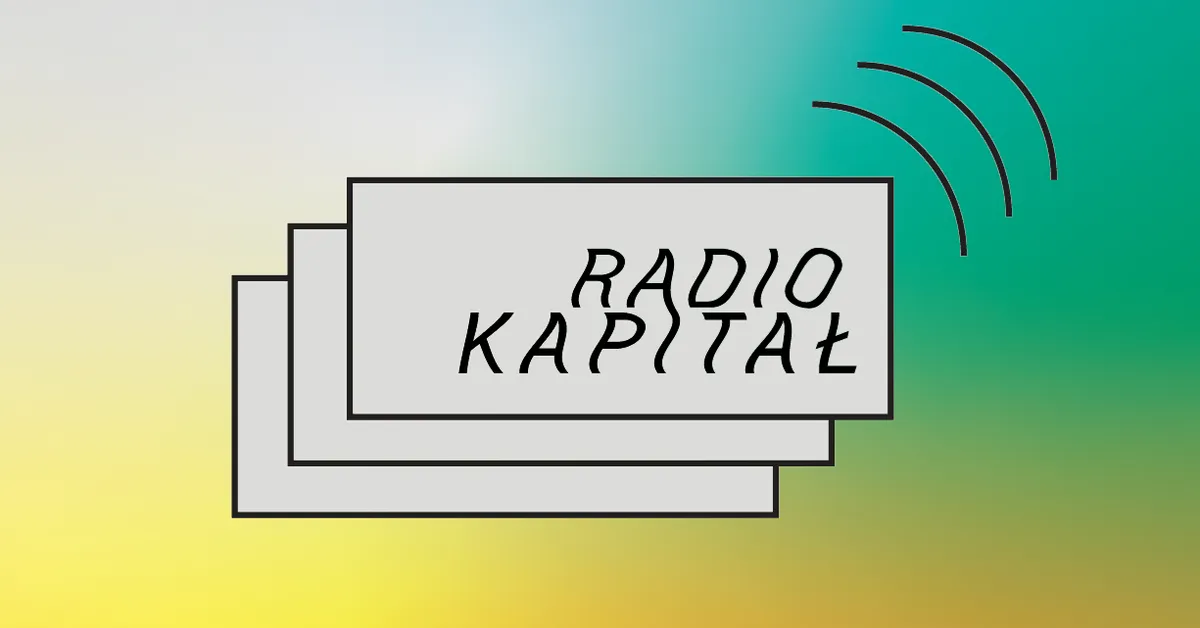
To explore the evolution and challenges of running an independent, community-driven radio station like Radio Kapitał, we organized a workshop titled "The Life Cycle of a Community Radio: Some Thoughts on Radio Kapitał's 5th Birthday." The event featured presentations from Ola Szkudłapska, a long-time Radio Kapitał contributor, professional translator and activist, and Piotra Klujewski, who joined the station in 2023 and is currently finishing his third year of New Media at the Academy of Fine Arts in Warsaw. The discussion focused on Radio Kapitał's journey - "sharing triumphs and challenges, while exploring the eternal question: 'Why do we even do this thing?'"
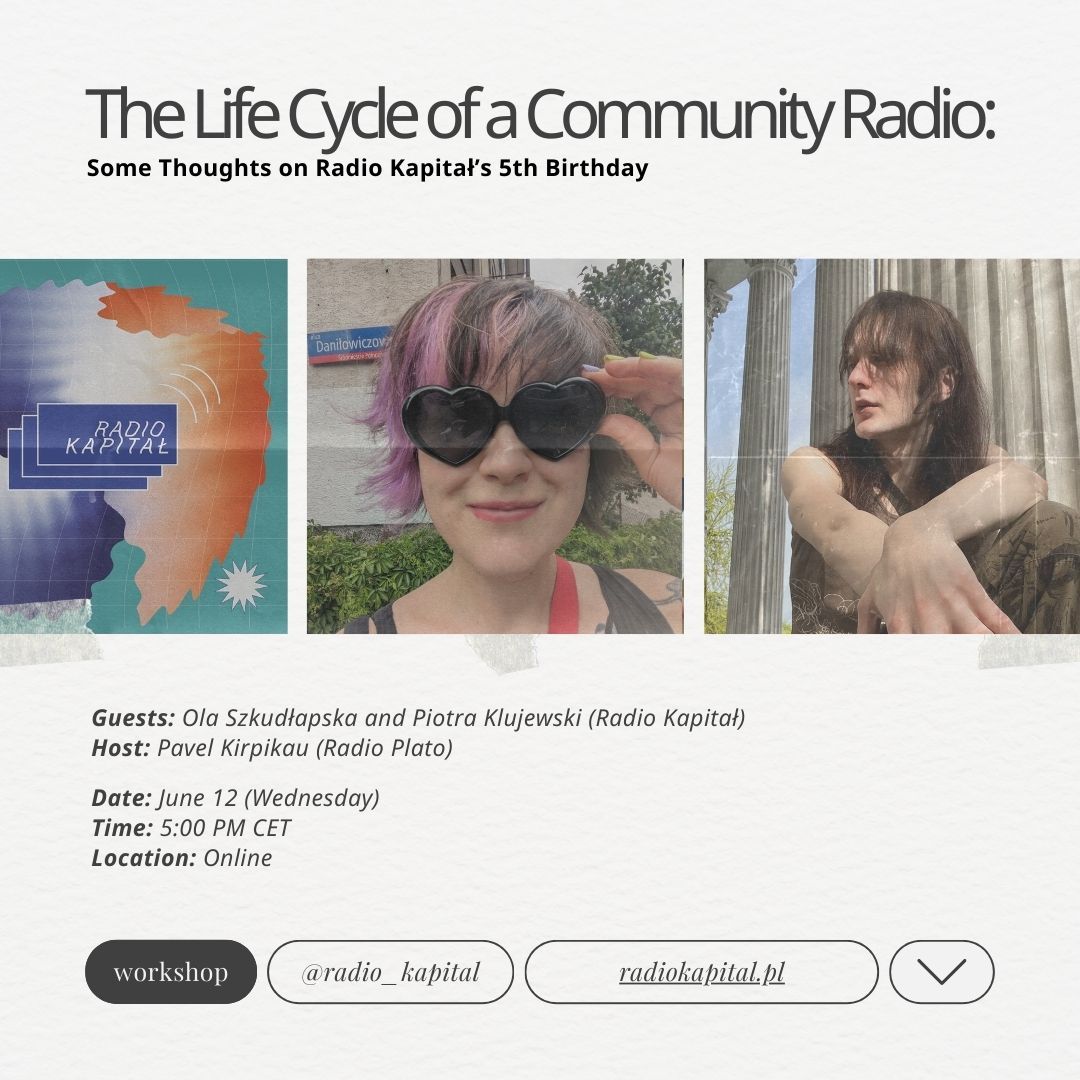
Driven by a horizontal, community-centric model, Radio Kapitał opened its virtual doors to anyone who wanted to start a show. This fostered a programming lineup that reflected the eclectic interests and passions of its volunteer collective. However, as the station gained popularity and the operational demands increased, the founders faced a pivotal decision - whether to maintain their grassroot, DIY ethos or transition to a more formalized structure.
The path Radio Kapitał has taken over the past five years mirrors the broader challenges confronting independent, community-driven media projects. From navigating the shift to a registered association, to grappling with technical issues and sustaining volunteer engagement, the station's evolution offers valuable lessons on the realities of running an community radio platform in the digital age.
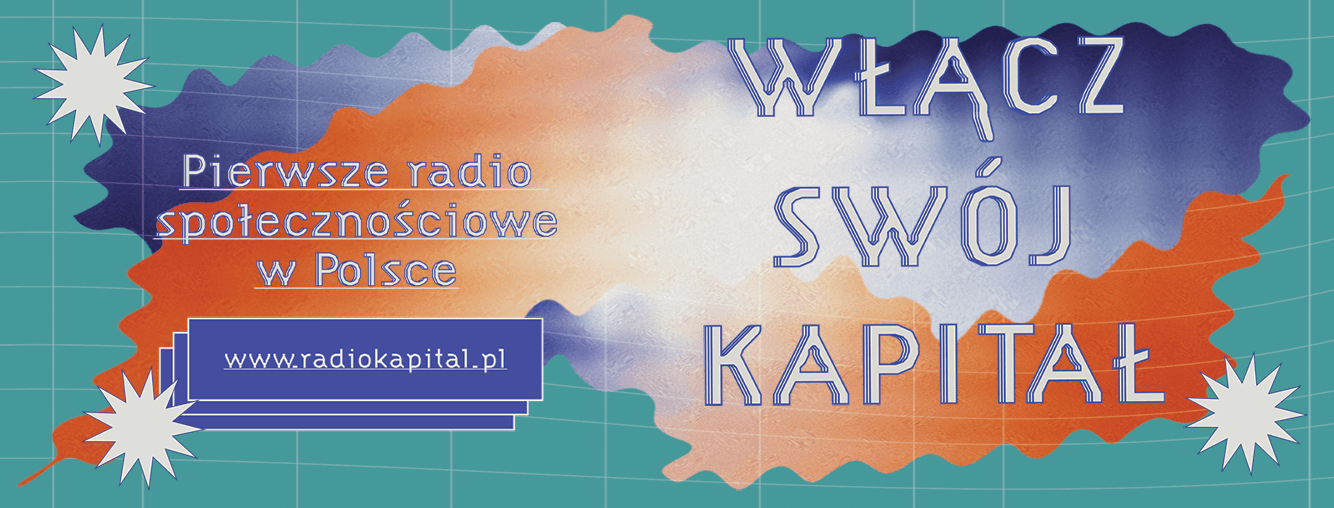
The early days: a horizontal, community-driven model
Radio Kapitał started as an "art residency" that attracted a diverse group of participants, including people from institutional cultural spaces as well as grassroots activists. The founders adopted an "ownership" structure, where anyone could “buy a share” in the radio and participate in collective decision-making.
This open, egalitarian approach fostered a programming lineup that reflected the eclectic interests and passions of the volunteer collective. As Ola noted, "the word spread out" and people simply joined to start their own shows. During the COVID-19 pandemic, this community-driven model flourished, as more people began recording from home and getting involved. The founders embraced a "I have nothing, you have nothing - let's start the radio" mentality, creating a sense of shared ownership and DIY ethos from the very beginning.
<iframe width="560" height="315" src="https://www.youtube.com/embed/erpf8fmm30k?si=46x8AU06mubVzSOF" title="YouTube video player" frameborder="0" allow="accelerometer; autoplay; clipboard-write; encrypted-media; gyroscope; picture-in-picture; web-share" referrerpolicy="strict-origin-when-cross-origin" allowfullscreen></iframe>In the early years, Radio Kapitał operated out of various cultural spaces in Warsaw. Its first studio was located at the Museum of Modern Art in Warsaw. Later, it found a second home at Komuna Warszawa theatre, an old school in the center of Warsaw serving as an art center. Currently, Radio Kapitał's recording studio is housed at Staromiejski Dom Kultury (Old Town Cultural Centre), which also serves as a partner in art projects. While these partnerships provided physical studio spaces and connected the radio to established institutional networks, the lack of a single, dedicated radio space made it challenging to integrate the community fully.
The radio's website and technical infrastructure were also quite basic in those early days, as it started out as part of the Komuna Warszawa’s 30th anniversary residency at the Museum of Modern Art in Warsaw. This experimental, open-ended approach allowed the project to evolve organically, with new people continuously joining the collective and shaping the radio's direction.
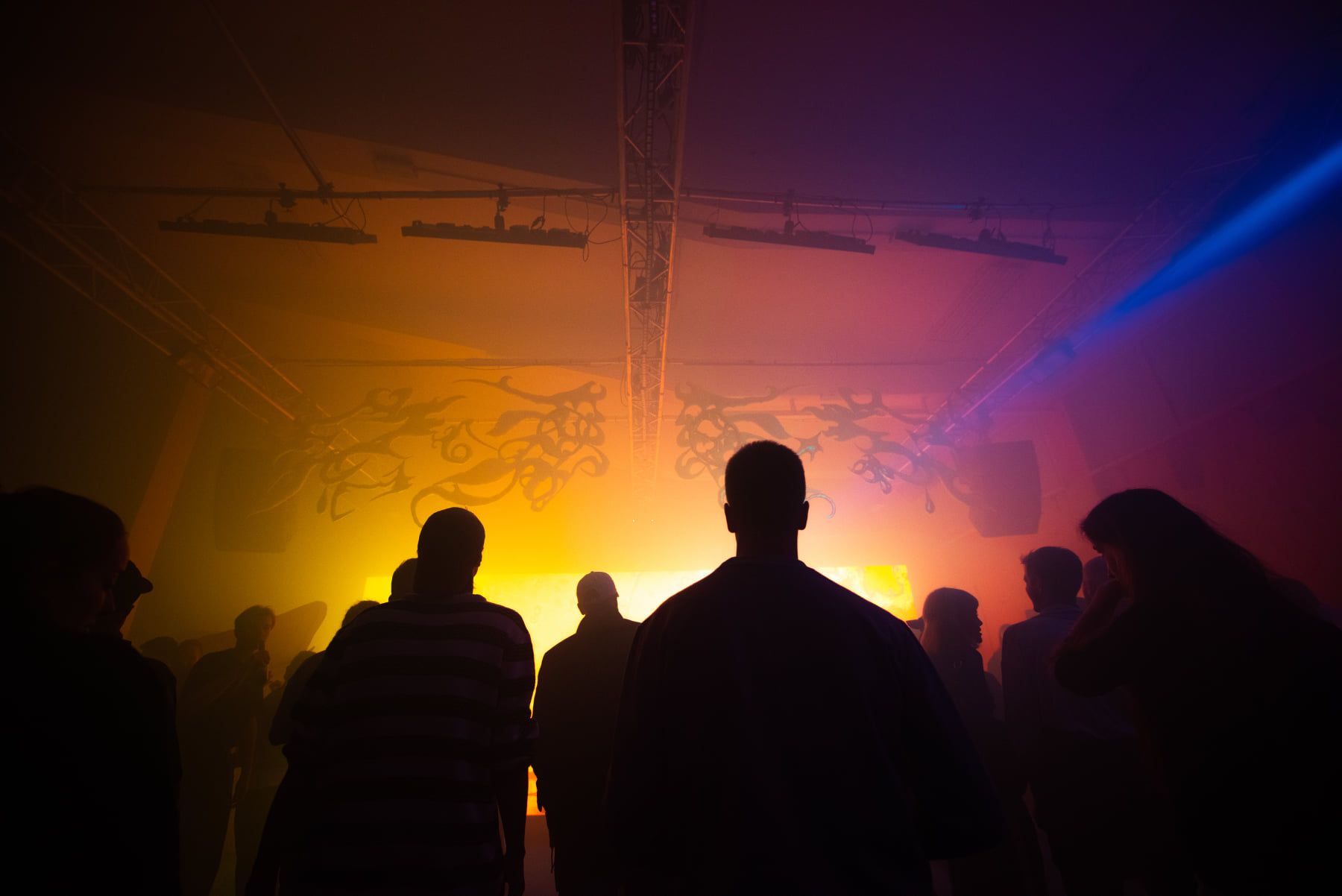
Transitioning to a formal association
As the station gained popularity and the operational demands increased, the founders faced a pivotal decision - whether to maintain their DIY ethos or transition to a more formalized structure. This led Radio Kapitał to register as a formal association with a management board in 2021, under the name Stowarzyszenie Radio Kapitał. The rationale behind this transition was to be treated as a "serious partner" by other institutions and to have the ability to apply for funding and grants.
This shift brought both benefits and challenges. On the one hand, the formal structure allowed Radio Kapitał to secure resources and pay contributors. But on the other, it posed difficulties in preserving the original grassroots spirit. As Ola put it during workshop discussion, the transition was "cannibalizing our horizontal structure in a way."
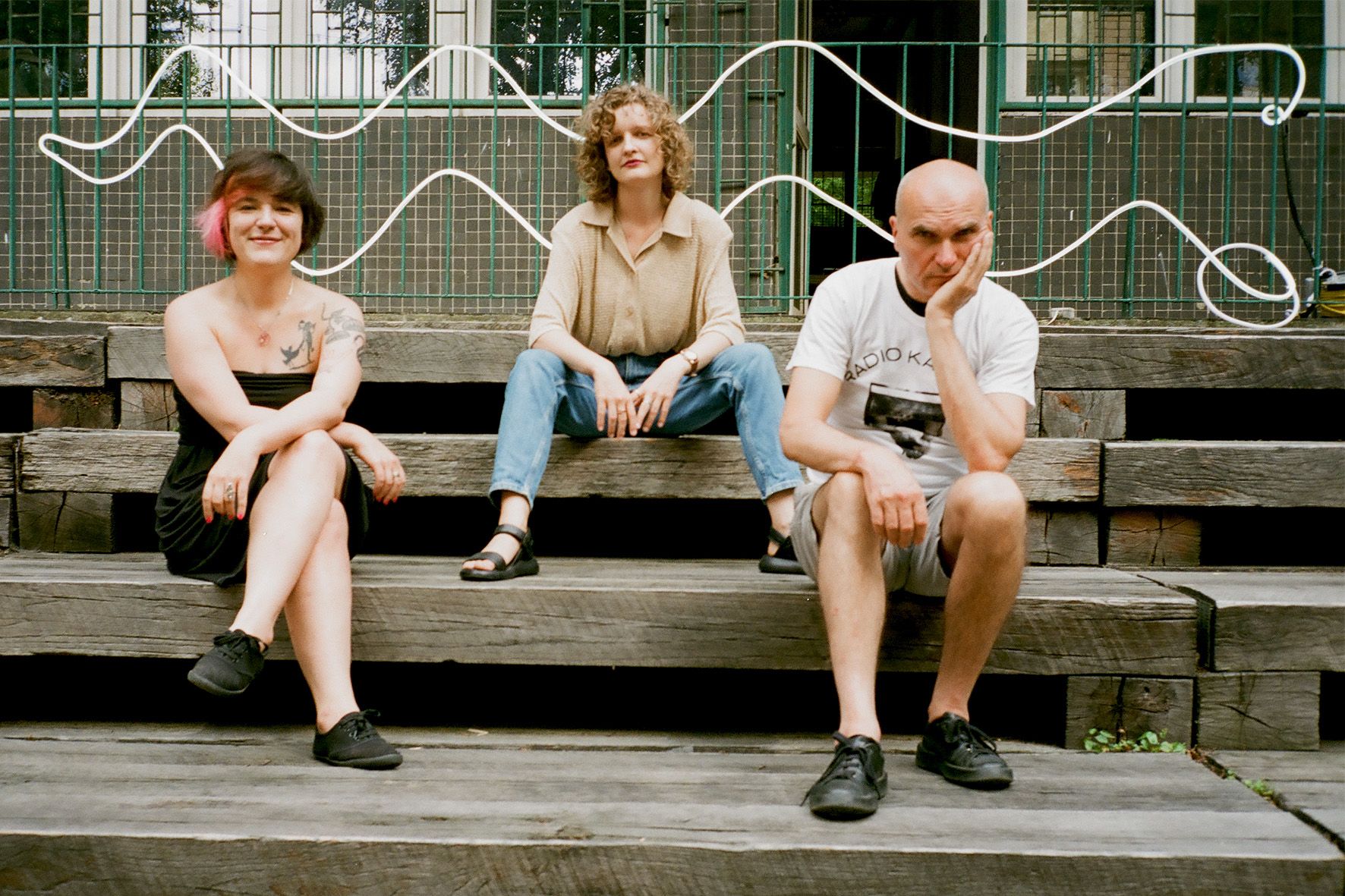
The association now has a three-person management board, with decisions taken by two members acting jointly. There's also a three-person supervisory board, subordinate to the Mayor of Warsaw. The management board consists of (on the photo from right to left) Grzegorz (co-founder of Komuna Warszawa), Diana (who works at SDK) and Ola (freelance translator, activist). The shift to a registered association impacted the radio's decision-making processes. Whereas previously the collective of 15-20 people would come together to passionately debate the station's direction, the management board now finds itself responding more to practical concerns and administrative tasks, rather than driving the creative vision.
Maintaining the community spirit
As Radio Kapitał transitioned to a more formalized association structure, the founders faced an ongoing challenge in preserving the original community-driven spirit of the project.
One of the key issues was sustaining volunteer engagement and ensuring contributors felt a true sense of ownership over the radio. With the management board now responsible for more administrative and practical concerns, there was a risk of the volunteer base becoming disconnected from the decision-making process.
To address this, Radio Kapitał has made efforts to foster a continued community dynamic. The station maintains an editorial board that meets once every month or two months. Communication is facilitated through Slack and Messenger, connecting a community of over 200 members. The station also organizes community meetings, although they acknowledge the need for more frequent gatherings.
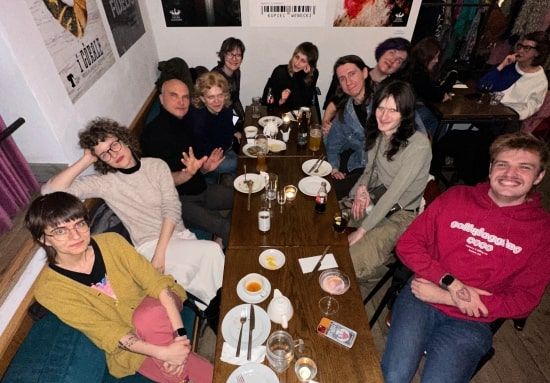
For new members, Radio Kapitał provides a welcome pack that includes a tutorial of the website and graphic guidelines. They also offer ad hoc studio training and maintain a Facebook group for community support. The station has an ongoing open call for new shows, as well as targeted open calls for specific projects.
Special events, fundraisers, and even monthly meetings have all been utilized to bring the collective together and reinforce the sense of shared ownership over the project. Maintaining this community-driven ethos, even as the organization has grown more formal, remains a persistent priority.
Technical and operational challenges
In addition to the challenges of maintaining the community-driven spirit, Radio Kapitał has also grappled with various technical and operational issues over the years (who didn’t, right?). These bottlenecks have impacted the radio's ability to function smoothly and consistently.
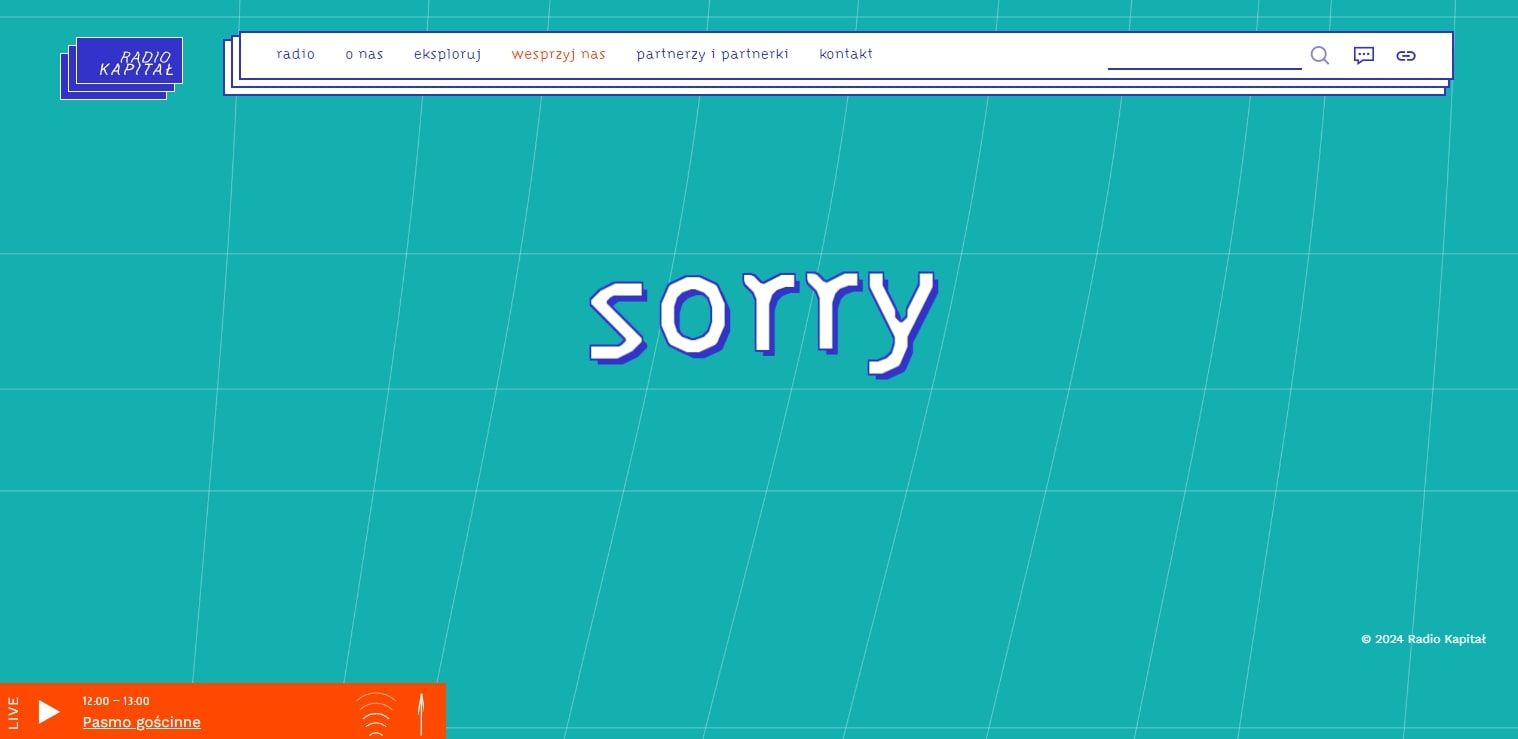
The radio's technical infrastructure includes www.radiokapital.pl as the main website, Airtime as the radio engine, and Mixcloud for the radio archive. A mobile app is also in development. Considering the amount of and complexity of the software stack needed to run independent web radio it’s very hard to have a volunteer development team to maintain the website and backend systems.
This raises even bigger questions of sharing responsibilities in a horizontally organized (or disorganized) projects and how not to get over-reliant on key individuals. Shared discussion during the workshop highlighted that it is crucial to document processes, operation, how-to’s, code, etc. This drastically helps to improve new members training and on-boarding process, reducing overreliance on key individuals that is very problematic in community focused projects.
The question of growth and vision
With the transition to a more formalized association, Radio Kapitał also faced questions about the station's future growth and long-term vision. The workshop discussion touched on the debates around whether to focus on institutional collaborations versus remaining an open community platform.
On one hand, the formal structure allowed Radio Kapitał to secure resources and partnerships with established cultural institutions. This opened up new opportunities for the radio, such as producing collaborative radio pieces and events. The station has developed several initiatives that showcase this growth:
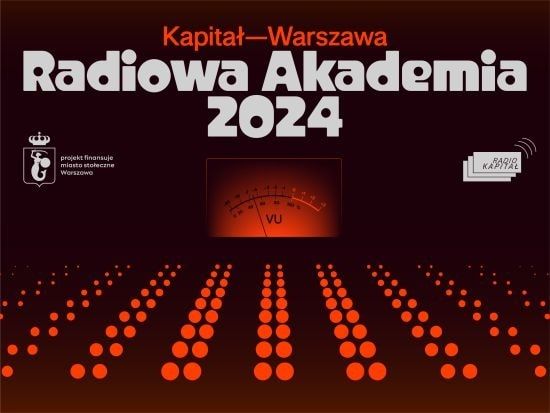
- Radio Academy: An award-winning educational project consisting of 7 weekends of theoretical and practical classes, where participants work in groups to produce a radio show. The academy is now in its 3rd edition. 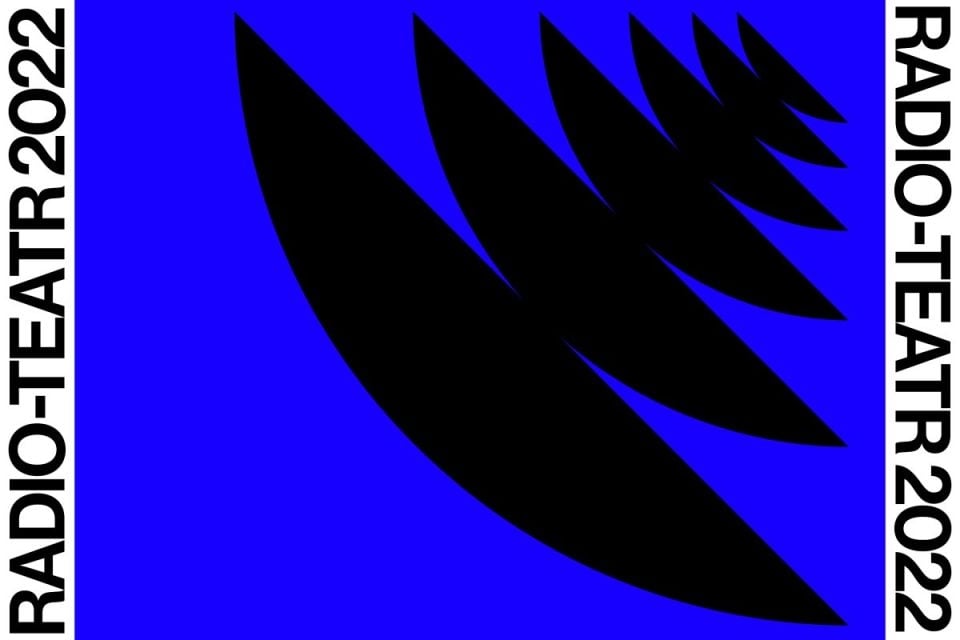 - Radio Theatre: A series of five audio pieces covering topics such as poetry, queer history of Warsaw and social issues. These pieces were co-produced by Radio Kapitał and Staromiejski Dom Kultury, with a grant from Goethe Institut.
- Radio Theatre: A series of five audio pieces covering topics such as poetry, queer history of Warsaw and social issues. These pieces were co-produced by Radio Kapitał and Staromiejski Dom Kultury, with a grant from Goethe Institut. 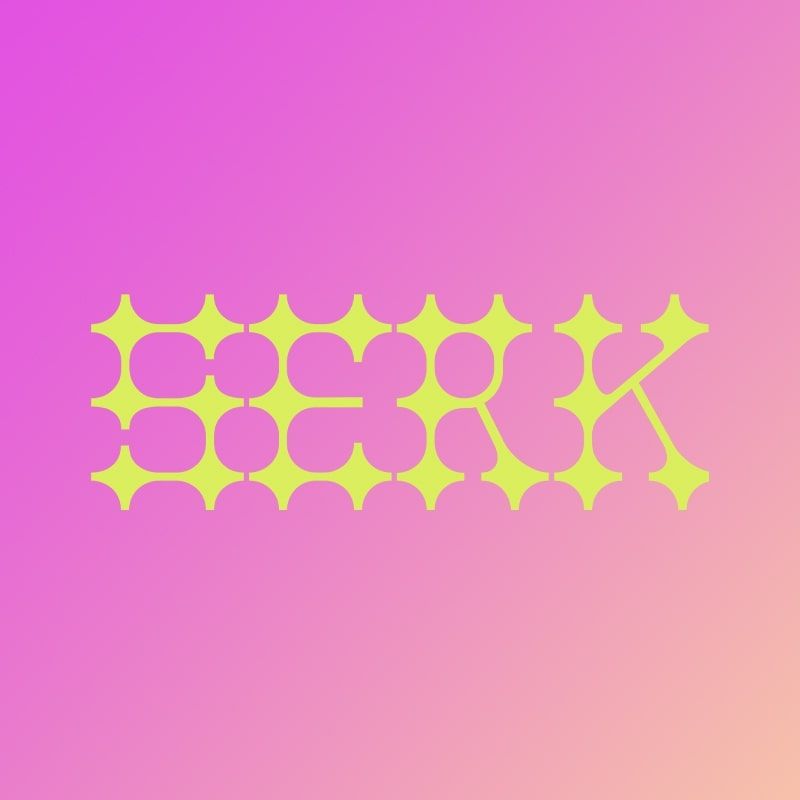 - Radio Kapitał Experimental Studio: An ongoing series of concerts in various venues around Warsaw, with 10 events organized so far.
- Radio Kapitał Experimental Studio: An ongoing series of concerts in various venues around Warsaw, with 10 events organized so far.
However, this growth also raised concerns about potentially losing the station's grassroots identity and community-driven ethos. The workshop participants acknowledged the pros and cons of continued expansion versus consolidating efforts. While expanding the radio's reach and influence could bring more resources and visibility, it also risked stretching the volunteer collective too thin and potentially compromising the intimate, community-focused spirit that had defined Radio Kapitał in its early years.
Financing has become a crucial aspect of the station's growth. Radio Kapitał now relies on a mix of funding sources, including fundraising campaigns, a Patronite subscription, and project-based grants. Underlying these discussions was a lack of a clear, long-term vision for the radio's future. Without a shared understanding of where the station was headed, the decision-making process became more reactive, focused on addressing immediate operational needs rather than proactively shaping the radio's direction.
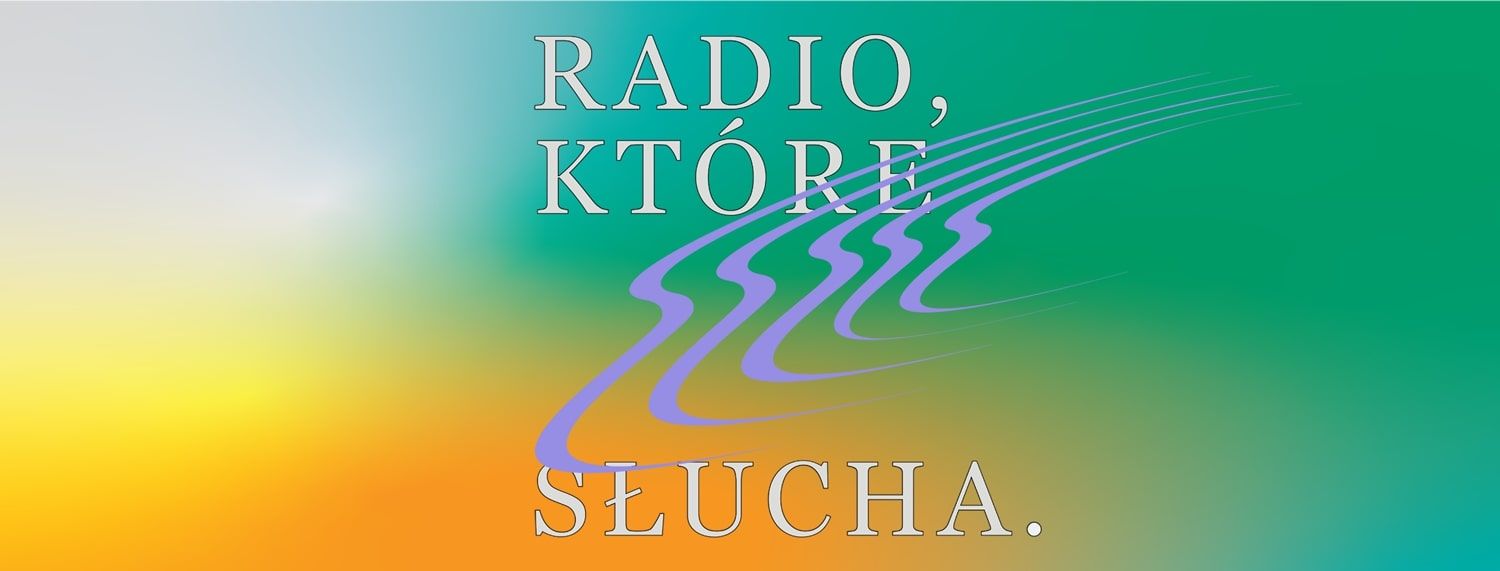
Conclusion
Radio Kapitał's evolution over the past four years reflects the broader challenges facing independent, community-driven media projects in the digital age. From navigating the shift to a more formalized association structure to grappling with technical issues and sustaining volunteer engagement, the radio's story offers valuable lessons on the realities of running an alternative platform.
Despite the obstacles, Radio Kapitał, recently celebrating 5 years, is a testament to the passion and resilience of its community. Even as the station has grown and institutionalized its processes, it has continued to serve as a platform for diverse voices and experimental content. This enduring role speaks to the importance of independent, community-driven media in an increasingly homogenized media landscape.
